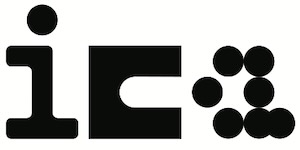Although less known internationally than it deserves to be, Wojciech Has’s The Noose (1957) was arguably the strongest feature debut made in Poland between the rebirth of the country’s national cinema at the end of WWII and Roman Polanski’s Knife in the Water (1961). Its big advantage was that, unlike the debuts of Has’s peers (Jerzy Kawalerowicz, Andrzej Munk, Andrzej Wajda), The Noose was made late enough so as not to be hamstrung by the dictates of compulsory Socialist Realism, which governed all creative output in Poland from 1949 to 1956. Indeed, it’s unlikely that such a project would have been sanctioned in the Socialist Realist era, since the film’s dissolute protagonist Jakub ‘Kuba’ Kowalski (Gustaw Holoubek) could hardly be further removed from the notion of an idealised Socialist hero.
For starters, he’s an alcoholic. In fact, Kuba Kowalski is one of the cinema’s great alcoholics, fully up there with Ray Milland’s Don Birnam in The Lost Weekend (1945) or Nicolas Cage’s Ben Sanderson in Leaving Las Vegas (1995). And while he might have secured official approval if he’d seen the error of his ways and turned to the path of ideological righteousness… well, it’s scarcely a major plot spoiler to reveal that this doesn’t happen. Indeed, the screenplay, adapted by Marek Hłasko from his own short story, was initially rejected by the official assessment committee, only being passed (and still with some hesitation) on a second submission.
Kuba was allegedly based on Hłasko’s friend Władysław Broniewski (1897-1962), a poet and revolutionary who also struggled with alcoholism, although the much younger Kuba can’t match Broniewski’s high-profile political activism. Although he is also an artist, the only detail that Has added to Hłasko’s script, which he otherwise filmed virtually as written. Or at least in terms of its plot and dialogue; the heavily symbolic visual treatment, which Has characterised as somewhere between Expressionist and Surrealist, is the director’s own.
Kuba lives on his own in a flat that could easily do double duty as a Samuel Beckett set or, two decades later, play host to the protagonist of David Lynch’s Eraserhead. During a downpour – and it’s almost permanently raining in this film – the rivulets trickling down the window are projected onto the roughly finished walls, creating the impression that they’re melting. On those walls are mounted numerous empty frames, as if to suggest works that Kuba has sold in order to fund his drinking habit. (Jean Renoir would similarly retain the frames after selling his distinguished father’s paintings, albeit with the higher aspiration of funding his early film career). Broken glass can sometimes be heard crunching underfoot, a legacy of an accident with a picture frame.
Inside the flat, a metal sculpture features a hand reaching out; impossible to say whether it’s offering assistance or desperately clutching at the air. Outside, a large mural on the side of an opposite building features a woman who appears to be staring voyeuristically through the window at him; her neutral expression either pitying or mocking according to Kuba’s mood at the time. And above all there’s the phone, frequently framed as the dominant part of the image (including the entire opening credits sequence), and even when off camera its ring is just as disruptively insistent. Equally penetrating is the sound of a man collecting empty bottles, the uneven pavement causing them to clink relentlessly. It is not, to put it mildly, the optimal dwelling for an alcoholic, but one assumes that he couldn’t afford anything better.
Kuba does at least have a girlfriend, Krystyna (Aleksandra Śląska), a blonde ice maiden whose brisk efficiency he probably needs more than something more ostentatiously ‘romantic’, although he visibly bridles at some of her life-improving suggestions. Because he knows, and will affirm repeatedly as the film progresses, that for all his frequently voiced aspirations to get on the wagon, replace booze with Antabus tablets and dry out properly, this is unlikely to come to pass for as long as he still has access to a nearby bar. His deadline is 6pm, the time of his appointment at the clinic, and in the run-up Has regularly cuts to images of clocks, often disproportionately huge, to remind him and us of how long he has to cling to sobriety.
The fact that much of the film’s mid-point takes place in the Under the Eagle bar (decorated with a large stuffed eagle dangling above the punters, its walls lined with pictures of bodybuilders implicitly rebuking their lifestyle) tells its own story, and we learn much of Kuba’s back-story from the people he meets, whether it’s an old flame (Teresa Szmigielówna), a fellow drunkard named Władek (Tadeusz Fijewski) or the no-nonsense barmaid (Helena Makowska-Fijewska), whose response to the dare ‘If you say “eight”, I will take my own life today’ is to say ‘Eight’ and laugh mockingly. There’s also live musical commentary, from a piano-and-violin duo whose love song includes the repeated line ‘Take the scissors, cut the line, we’ll say we’re not at home’, and Poldek the accordionist (Zygmunt Zintel). (The film’s official score, by Tadeusz Baird, is doom-shrouded from the start, its low-register piano chords making repeated appearances to signal something about to turn for the worse.)
One of the most telling scenes comes after Kuba and a telephone engineer named Janek (Roman Kłosowski) come to blows in the street. Hauled up in front of the local police sergeant (a world-weary Stanisław Milski), they’re let off with a caution not because they couldn’t have faced more serious charges (indeed, Kuba seems to be provoking him into overreacting by repeatedly saying ‘Pijak’ – ‘Drunkard’ – when asked his name and profession), but because he honestly can’t be bothered. And in any case he has one of his regulars to attend to, an elderly alcoholic who can predict precisely which cell he’s going to end up in – and the sergeant can in turn predict when he’s going to stop singing and start fitting.
Has and cinematographer Mieczysław Jahoda (who had already filmed a couple of his documentary shorts) repeatedly treat Kuba to close-ups that would be decidedly unflattering in a different kind of film, but which are all too revealing here; we’re talking visible pores and oozing sweat, lit so as to emphasise every droplet. And Kuba knows perfectly well what he looks like at any given moment but simply doesn’t care; once the drink takes hold, he’s happy for it to lead wherever it’s minded to take him, even at the risk of destroying relationships, reputations and possibly even his life.
This wasn’t quite Gustaw Holoubek’s film debut: he’d played the fearsome Feliks Dzierżyński, Polish-born founder of the Soviet secret police, in Wanda Jakubowska’s Soldier of Victory (1953) and a supporting role in Wadim Berestowski’s adventure film The Mineshaft Mystery (1956). But this was his first big screen leading role, following a decade of outstanding stage work that had already established him as one of the finest Polish actors of his generation. His Kuba Kowalski ranks alongside Zbigniew Cybulski’s as yet unfilmed Maciek Chełmicki in Wajda’s Ashes and Diamonds (1958) as one of the most charismatic characters in all 1950s Polish cinema; even when he’s at his most self-humiliating, you can’t take your eyes off him.
Michael Brooke, season curator
The Birch Street Ulica Brzozowa
Directors: Wojciech Jerzy Has, Stanisław Różewicz
Poland 1947
9 mins
Digital (restoration)
The Noose Pętla
Director: Wojciech Jerzy Has
Production Company: Polish State Film
Screenplay (based on his short story): Marek Hłasko
Director of Photography: Mieczysław Jahoda
Editor: Zofia Dwornik
Art Director: Roman Wolyniec
Costumes: Andrzej Cybulski
Make-up Artist: Zbigniew Dobracki
Music: Tadeusz Baird
Sound: Bohdan Bienkowski
Cast
Gustaw Holoubek (Kuba Kowalski)
Tadeusz Fijewski (Władek)
Aleksandra Śląska (Krystyna)
Teresa Szmigielówna (Kuba’s old flame)
Helena Makowska-Fijewska (barmaid)
Zygmunt Zintel (Poldek)
Roman Kłosowski (Janek)
Stanisław Milski (Rybicki)
Poland 1957
102 mins
Digital (restoration)
In cultural partnership with

This retrospective is presented in partnership with the ICA, which will also be hosting exclusive screenings of Has’ works.

The 23rd Kinoteka Polish Film Festival is part of the UK/Poland Season 2025.

Organised by

All restorations by


All films courtesy of

SIGHT AND SOUND
Never miss an issue with Sight and Sound, the BFI’s internationally renowned film magazine. Subscribe from just £25*
*Price based on a 6-month print subscription (UK only). More info: sightandsoundsubs.bfi.org.uk

BFI SOUTHBANK
Welcome to the home of great film and TV, with three cinemas and a studio, a world-class library, regular exhibitions and a pioneering Mediatheque with 1000s of free titles for you to explore. Browse special-edition merchandise in the BFI Shop.We're also pleased to offer you a unique new space, the BFI Riverfront – with unrivalled riverside views of Waterloo Bridge and beyond, a delicious seasonal menu, plus a stylish balcony bar for cocktails or special events. Come and enjoy a pre-cinema dinner or a drink on the balcony as the sun goes down.
BECOME A BFI MEMBER
Enjoy a great package of film benefits including priority booking at BFI Southbank and BFI Festivals. Join today at bfi.org.uk/join
BFI PLAYER
We are always open online on BFI Player where you can watch the best new, cult & classic cinema on demand. Showcasing hand-picked landmark British and independent titles, films are available to watch in three distinct ways: Subscription, Rentals & Free to view.
See something different today on player.bfi.org.uk
Join the BFI mailing list for regular programme updates. Not yet registered? Create a new account at www.bfi.org.uk/signup
Programme notes and credits compiled by Sight and Sound and the BFI Documentation Unit
Notes may be edited or abridged
Questions/comments? Contact the Programme Notes team by email

